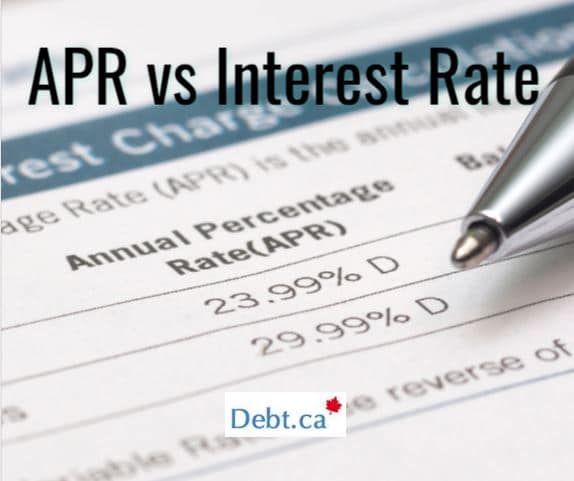Knowing how to negotiate lower interest rates on your debt successfully is an asset. However, paying off debt can be difficult. It often requires months of persistence, making payments on time, strict budgeting, and frugality. It’s not a fun experience.
If having better personal finance is one of your goals, learning to negotiate lower interest rates is an invaluable tool.
If you don’t like the idea of living frugally while paying off debt, look into ways to pay it off faster. Most of the time, this entails sending more money towards your debt, but there is another way to speed up your debt repayment, and that’s by lowering the credit card interest rates on your debt.
By lowering your interest rates, you’ll spend less money paying your creditors and more money reducing your loan principal, which is what brings you closer to financial freedom.
According to a U.S. Public Interest Research Group survey, about half of the surveyed consumers who requested lower interest rates were successful, and their average rate reduction was about 5.53%.
So, if you want to negotiate lower interest rates on your debt, you should prepare yourself. First, do your research on negotiation best practices to maximize your chances of success. We’ve compiled five key steps below to help you succeed in your interest rate negotiations so you can start paying off debt.
Step 1: Do your homework
The first step towards a successful interest rate negotiation is to arm yourself with information. Research what other balance transfer offers are available from competing lenders. Next, research different options for your debt like lines of credit, low-interest credit cards, or balance transfer credit cards. Finally, if you are carrying your debt, call different credit card issuers to see if they can offer you a lower rate.
It’s important to note that you shouldn’t let them make a hard inquiry into your credit score, which will temporarily negatively affect your credit score. Instead, ask the lender for introductory rates. Then, if you find a provider offering an excellent rate, ask for that information to be emailed to you if you decide to move your debt there later.
Option 1 – Buy A Lower Rate
It’s not too common, but some credit cards offer a plan where you can pay an annual fee for a lower interest rate. For example, BMO’s “Preferred Rate” Mastercard offers a regular rate of 17.5% or 11.9% for $20 per year. Check with your credit card issuer to see if they have this option. If they do, and options 2 and 3 below don’t work, this is the perfect way to save some money on interest.
Option 2 – The Threat Of A Competitor
Your credit card company wants to make money from your interest payments. If you tell them you’re going to switch to another card and transfer your balance over to that one, they’re at risk of losing all future income from you.
Start by calling your credit card representative and say something like this:
Hello, my name is Roger Smith, and I’ve been a customer of yours for 12 years. I’ve received several offers in the mail recently for credit cards that offer a balance transfer with 0% interest for six months and then a lower interest rate than I’m paying now. I prefer to stay with you, but I need you to lower my card’s interest rate.
Once they offer you a new rate, you can accept it or push it a bit harder. The only caveat is you should be willing to move, and the offer you mention should be genuine.
If the service rep refuses, you can always try back in a day or two. A different agent may be more willing to help you.
Option 3 – The Threat Of Bankruptcy Or Default
Similar to Option 2, your bank would rather have some of your money than none. Suggesting that you’ve built up a massive debt load and are having problems paying it back may be enough to get a lower rate on your card.
Call and tell them:
Hi, this is Robert Smith, and I need your help. I recently had a couple of financial emergencies and was forced to put some significant expenses on my credit cards. I have a card with you and a couple with other banks.
The truth is I now owe over $_______, and if I can’t get some help with these interest rates, I’ll go bankrupt. These are my debts, and I want to pay you back, but I need your help making that possible. What can you do about lowering my rates?
By explaining that you’re in a bit of a desperate situation AND that you do want to pay off your debts (and not borrow more money), you should have pretty good luck getting your rates reduced.
Always be polite, and if the person you’re speaking to can’t help you, ask to talk to someone who can. Furthermore, if your relationship with your bank has been a good one, you can bring up the fact that in the past, you’ve paid off other loans on time and that you’re not a high-risk borrower.
Step 2: Negotiate before paying off debt
Once you’ve armed yourself with research, you’ll know what a reasonable interest rate reduction is for your particular debt tool. Use this information to come up with a realistic ask. Maybe it’s a few percentage points on your line of credit or five or more percentage points on your credit card. Whatever it is, have a number in mind, and be prepared to ask for it.
Step 3: Start with your oldest credit card
Leverage your loyalty to your credit card provider by negotiating interest rates on your oldest credit card first. Emphasize that you’ve been with them for years, and you just want a temporary reduction in your interest rates to get your debt under control. Then, leverage your credit history with credit card companies.
Don’t be afraid to mention competitors’ rates to see if that will motivate them to give you a lower rate. Now, prepare for calling your credit card company.
Step 4: Make the call
Making the actual call to lower your interest rate can be an uncomfortable experience. To maximize your chances of success, make sure to practice beforehand. Be direct and honest about what you want. Explain that you are a loyal customer trying to get your debt under control, and you’d like a temporary reduction in your interest rate.
Explain that you’ve researched different options and state what you feel is a reasonable reduction. Be direct with your request. Research common negotiating tactics and practice them beforehand.
Pushy people don’t get anywhere with customer service representatives. Instead, explain that you are paying off debt and ask if you have any options.
Step 5: Follow through on your threat
Sometimes negotiating doesn’t work, or it doesn’t work well enough. For example, you might get the interest rate reduction you asked for, but it’s not as low as a competitor’s rates. In this case, follow through and move your debt to a lower interest rate product.
Whether you move your debt to a lower interest credit card, a line of credit, or a balance transfer credit card, it’s crucial to get the lowest possible interest rate on your debt. Saving even just a few percentage points in interest on your debt can save you hundreds of dollars.
Negotiating a lower interest rate on your debt is a great way to speed up the debt repayment process. It puts more money towards the loan principal instead of interest. If you follow the steps above, there’s a good chance you’ll be successful.
What To Do With A Lower Interest Rate
Once you’ve successfully had your rates lowered, it’s time to make sure it means something. Reducing an 18% loan to an 11% loan isn’t that great if it still takes you 20 years to get out of debt (cheaper, yes, great, no).
You want to get back to focusing on paying off those debts as fast as possible. A lower interest rate means a higher percentage of your money goes towards your principal every month. As such, you can expect to see real progress soon.
And if you still want to buy that new TV, cut up your card.
Final Thoughts
When you negotiate lower interest rates, it allows you to pay down debts faster. Ultimately, this can help you go from a poor rate on your credit report to good credit standing.
Furthermore, it can increase your credit limit and ability to make major purchases in the future. If you are not prepared to negotiate, perhaps credit counselling is a good option for you. Contact us today to learn more about your options.









